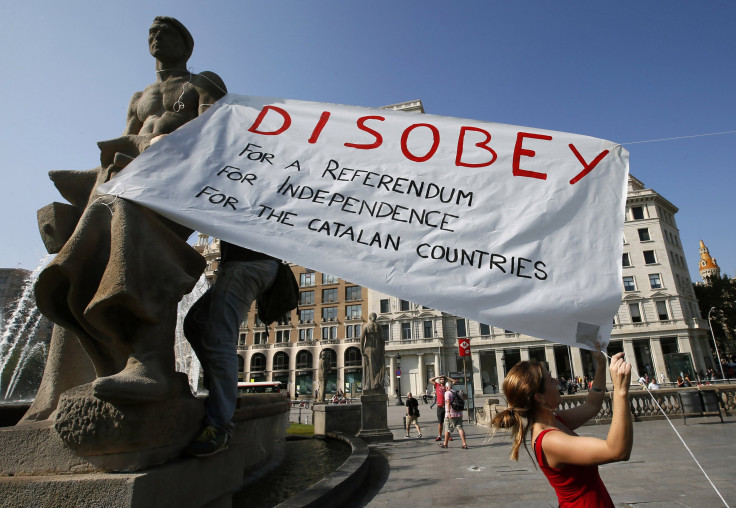Spanish Bond Yields Fall Amid Catalan Separatist Movement

Whether or not Spain remains united with its economically powerful Catalan region, the political standoff is already undermining investment in the Spanish economy. Spanish government bond yields, already on a downswing, fell to their their lowest in more than five years Monday, showing investors’ uneasiness.
Bond buyers want high yields to receive the most return on investment. Lower yields drive up bond prices, discouraging some would-be investors from buying bonds and lending money to the debt-riddled Spanish government and encouraging current bondholders to sell their Spanish bonds.
The 10-year bond yield investors demand to lend to Spain instead of Germany, Europe’s largest economy, widened by six basis points Monday to 124 points. The difference was with 111 points Sept. 5, the tightest since May 2010, according to Bloomberg’s calculations.
The drop in yields comes as Catalan President Artur Mas prepares his region, on the northeastern edge of Spain and bordering France, to vote on independence Nov. 9. Despite a court order from Madrid prohibiting the vote, two-thirds of the region’s lawmakers support it.
Catalonia is the most productive region in Spain, contributing nearly 20 percent to GDP. Catalonians have their own language and semi-autonomous government, which controls education, health care and a regional police force.
Spain left behind a two-year recession in mid-2013 and has since been one of the euro zone’s strongest economies. Spain’s economy grew at its fastest pace in six years during the second quarter as growth in the rest of the euro zone stalled.
© Copyright IBTimes 2024. All rights reserved.












